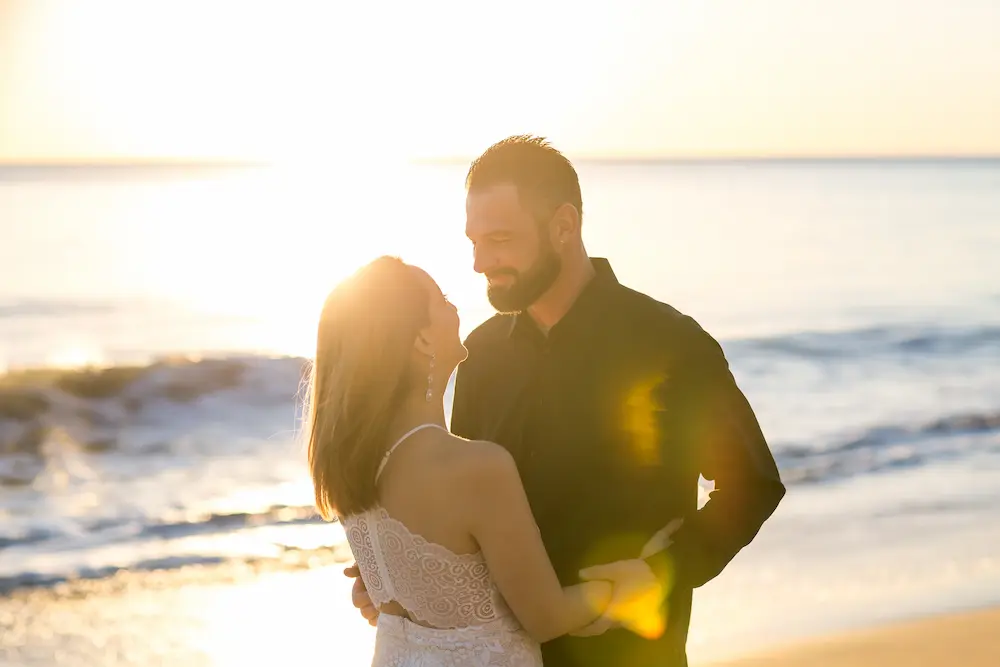Couples Therapy For Healing After Sobriety In Texas
Get the help you need now that you’re sober so your relationship can thrive
You got sober. Or your partner did. The bottles are gone, the substances out of the house, but the damage you experienced together? That’s still here. The guilt. The grief. The walls that went up. The pain of what was said, what was done, or what was ignored for far too long. And now you’re asking:
Can we heal after everything we’ve been through?
Can we love each other again, not just survive, but thrive?
Or is it too late?
I work with couples in recovery. I work with people who are committed to sobriety but still trying to figure out how to live in that sobriety together.
I know that choosing sobriety is the beginning of a very real, very vulnerable, very possible new chapter for you, your partnership, and your life together.


Why Marriages Change After Sobriety
- If you’re the sober partner, you may be carrying guilt, unsure how to make things right.
- If you’re the one who never used, you may feel like the emotional caretaker, afraid to let go of control.
- If you're both sober now, you may be wondering, What does a healthy, emotionally safe relationship even look like? How do we rebuild something that no longer fits who we are?


Helping Relationships Thrive In Sobriety Is Deeply Personal To Me
I grew up in a home shaped by alcoholism. My mother was angry and unpredictable. And then, after years of hurt, she got sober. I watched her change. I also watched my parents, against all odds, stay together through it all.
They weren’t perfect, but they protected each other. They treated their relationship as sacred. And I learned from them what it means to love well, even when it’s hard.
That’s why I do this work. That’s why I believe in what comes after sobriety… the rebuilding, the re-learning, the tenderness that gets to grow where chaos once lived.

Living With A Partner In Recovery Doesn’t Have To Be Lonely
I work with couples healing after sobriety, where one or both partners are sober and actively maintaining their recovery. This stage of the relationship is often quiet, tender, and fragile. You’re not in crisis anymore, but there is repair work to do.
That can mean grieving what’s been lost… years, connection, moments you can’t get back. It can mean holding space for the sorrow on both sides, without rushing past it.
It also means having honest conversations about how each of you showed up during the addiction. Not to assign blame, but to understand the survival strategies you both used, and why those strategies don’t work anymore.
You’ll start learning how to communicate differently. With less defensiveness. With more curiosity. With the intention to understand, not win.
You’ll practice setting boundaries as an invitation to safety. Boundaries that say, “This is how I stay connected to myself and to you.”
And slowly, steadily, you’ll rebuild trust through small, consistent choices. One clear agreement at a time. One kept promise at a time. One moment of presence at a time.
Living with a partner in recovery doesn’t have to mean walking on eggshells. It can mean walking forward, together.
What Healing After Sobriety Looks Like
- Helping both of you grieve the trust, time, and safety that was lost
- Untangling codependent patterns and practicing self-responsibility
- Learning to communicate without triggering shame or shutdown
- Making agreements that both partners can honor
- Exploring physical and emotional intimacy in new, non-performative ways
- Creating sustainable support systems beyond your partnership
A 12-Step, Recovery-Informed, Flexible Approach
I’m a strong supporter of 12-step models like Alcoholics Anonymous (AA) and Families Anonymous, but I meet couples where they are. What matters most is that sobriety is being maintained and supported by whatever model works for you.
This work is deeply informed by PACT therapy (Psychobiological Approach to Couples Therapy), which uses attachment theory, arousal regulation, and neuroscience to help couples build secure-functioning relationships. We use real-time interaction to work through pain, deepen safety, and build something stronger than before.
Together, we explore:
- How each of you experiences emotional safety
- What roles and rules emerged during the addiction
- What forgiveness and accountability look like in practice
- How to create agreements that are fair, realistic, and mutual
- How to move toward intimacy, without pressure or performance
What I Ask of My Clients
This work is for couples who are already in recovery. At least one partner must be under care (through a support group like AA or Alanon, working with a sponsor, or under the care of a medical provider). As long as you are not in crisis, I will gladly work with you.
This is not an appropriate setting for crisis stabilization, detox, or early sobriety.
We are working to heal the relationship after the storm, not during it. My role is to help couples rebuild once the foundation of sobriety is being actively maintained.

You Don’t Have To Keep Living In Survival Mode
Sobriety gave you a shot at life. Let’s make that life something worth staying in. Something you both want to wake up to. Something grounded in truth, mutual care, and a little bit of joy.
If you’re ready to do the work of rebuilding love, safety, and connection after addiction, I’m here. Repairing a relationship after sobriety is hard. But not impossible. Let’s talk about what thriving could look like for both of you.

Couples Healing After Sobriety FAQs
How do I fix my relationship after getting sober?
How much does couples therapy cost?
I charge $400 for couples therapy.
I’m a private-pay therapist and do not accept insurance. However, I’m happy to provide a monthly superbill for clients who wish to seek reimbursement through out-of-network benefits.
Sessions are 100 minutes, and longer sessions may be scheduled depending on your needs.

